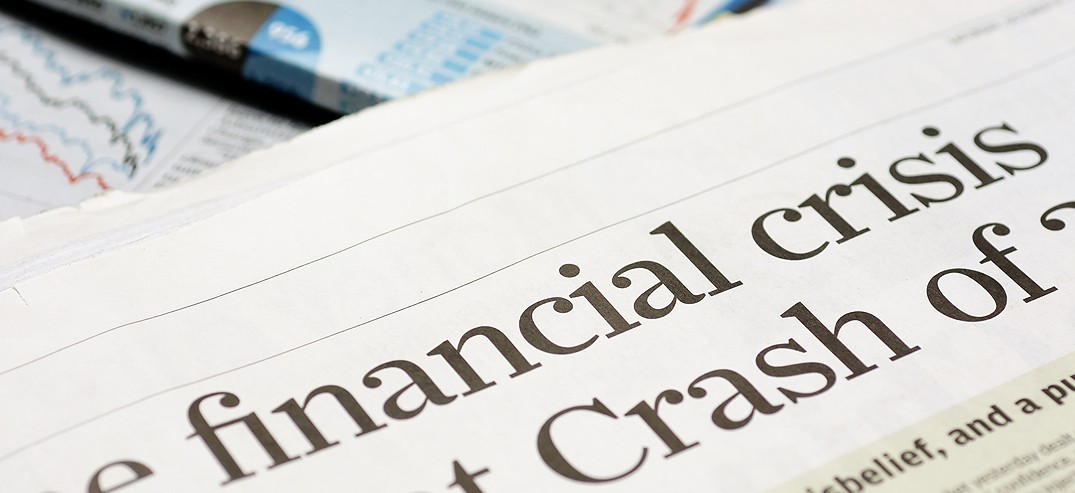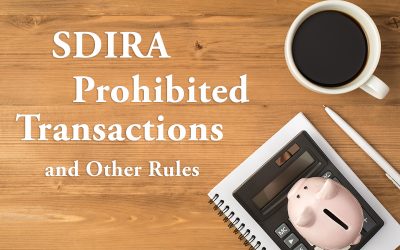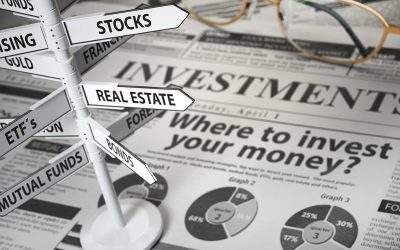
Many investors can testify that the 401(k) is a bad investment vehicle to retire on. At the same time, on the other end of the spectrum, it’s been built up to appear as the ultimate retirement plan. So, which is it? Well, to put it simply, the 401(k) can leave you flat broke while living out your golden years. We’re guessing that this statement has grabbed your attention and you’re interested in hearing more. So, with that in mind, we’ll get started with a quick summary of the question we’ll be focusing on in this article:
Is the 401(k) a bad investment? Although regarded as the primary retirement plan in the U.S., the 401(k) is not a reliable investment vehicle because its growth mainly depends on the volatile stock market, excessive account fees reduce the balance, the dollar amount you can contribute is capped, and most importantly, historical 401(k) balances reveal it’s simply not enough to retire comfortably on.
The Truth Behind Why the 401(k) is a Terrible Investment for Building a Retirement Fund
If you feel you can rely on your 401(k) to provide for your future, you may need to hear the hard facts to be convinced that this so-called tried and true investment vehicle can actually make you poor during retirement. With that said, let’s break down why the 401(k) is not the best path for building a nest egg.
The 401(k) was Created to Supplement a Pension and Not Be a Stand Alone Retirement Vehicle
Did you know that the 401(k) was designed to supplement a pension plan? A pension is a plan where an employer contributes to a fund set aside for an employee’s retirement and guarantees a set monthly payment for life. What makes a pension so great is that it’s funded by the employer, not the employee.
Even though the 401(k) was designed to supplement a pension plan, ironically enough, during the 1980s, it began replacing it instead. You see, a 401(k), where the employee contributes the bulk of the funds, is less costly to a company than a pension, and this may have been one reason why businesses only started offering 401(k)s instead.
Monique Morrissey, an economist at the Economic Policy Institute, summed it up well when she stated, “So we went from a system where the employer in the private sector paid for the entire pension and took on all the risk to a system where the worker in the private sector took on most of the cost and all of the risk.”
Doesn’t Provide Enough Money to Live Out Your Retirement Years – You’ll Come Up Short
Are you planning on just “setting and forgetting your 401(k)” with the thought of having a big pile of cash to live out the rest of your life after you retire? If so, you may want to reconsider this train of thought because it doesn’t align with reality. Yes, you can certainly end up with a large sum of cash, but it won’t be enough to sustain your desired lifestyle because retirement can span decades.

The Proof is in the Average 401(k) Balance
In a 2022 end-of-year report published in 2023, Vanguard gathered data from their 5 million contribution plan participants, which concluded that for 65+ individuals, the average 401(k) account balance was $232,710, and the medium balance was $70,620.
So, let’s say someone retired at age 65 with a balance of $232,710, who, while working, had an average income of $75,000 per year that met all their needs. If they maintained their current lifestyle, they would only be able to live off their 401(k) balance for about three years. Oh, but don’t forget that they won’t get the full $232,710 because they’ll have to pay taxes when they start withdrawing it, so it might not even last the full three years.
In any case, you get the point that although this is, indeed, a large pile of money, if all they retired on was their 401(k), they would have to go back to work after about three years. However, maybe they won’t have to if they cut expenses – move to a low-cost apartment, not go on vacations, limit entertainment, and so on, then they could stretch it out a little further. Using this example, would you really want to skim and cut back during a time when you’re supposed to enjoy life to the fullest after working hard all your life?
Ok, now let’s dive into the three main reasons most 401(k) holders will come up short:
1. Regulations Cap the Dollar Amount You Can Contribute to Your 401(k)
As many of you know, the dollar amount you can contribute to a 401(k) each year is capped, which creates a situation where you’re growing limited funds. According to the IRS, the contribution limit in 2024 will be $23,000, with a catch-up contribution limit of $7,500 for employees 50 and over, allowing them to contribute $30,000 annually. Additionally, it’s not a good idea to be capped because your goal should be to save as much as possible within your retirement account. Why? Because fees, taxes, and stock market crashes have a high probability of significantly reducing your balance, and we’ll dig into this a little deeper in the next section.
2. The 401(k) is a Bad Investment Because Massive Account Fees Lower Your Balance
401(k)s are typically managed through brokerage houses such as Charles Schwab, Fidelity, and Vanguard, and are overseen by their financial advisers. Now, these companies are not assisting you with your retirement account out of the goodness of their heart. No, they’re making enormous amounts of money off the process through fees.
Brokerages are Paying Millions for Ad Spots to Get Your Business
Proof of how much these brokerages are making off of you is revealed by the fact that they invest millions in television ads to attract your business. Can you imagine how much Charles Swab had to pay for the multiple Super Bowl ads they released over the years? To give you an idea, in 2002, they ran a 30-second Super Bowl ad that featured Ringo Starr. The ad spot cost them 2.1 million, and then there is the unimaginable cost of hiring a former Beatle – they must really want to manage your retirement account.
The bottom line is that they’re in the business to make money, and that’s exactly what they’re doing. The sad part is that most 401(k) holders don’t even know they’re being charged fees or how much is deducted from their accounts because they never read the fine print. The costs can include legal, trustee, booking, and finder fees, just to name a few.
Even sadder is the fact that account holders are paying through the roof to have their accounts managed; all the while, many financial advisors recommend items they wouldn’t even invest in themselves; they’re basically just pushing investments that the brokerage firm is telling them to push out to their clients.
Eye Opening 401(k) Fee Example
In an example given by the U.S. Department of Labor itself, if an employee has 35 years left until retirement and currently holds a 401(k) balance of $25,000, assuming a 7 percent annual return and a 0.5 percent reduction in fees and expenses, the employee would retire with $227,000. Now, in another example, if the fees and expenses are instead 1.5 percent, the investor will only retire with $163,000.
As you can imagine from the example above, even if your fees are just a fraction of a percent higher, tens of thousands of dollars more could be drained from your retirement savings. So, the fact that many investors don’t read the fine details of all the fees draining their accounts is pretty concerning.
The fees are one reason your brokerage firm will do everything in its power to keep your retirement account under its control. They don’t want you to cash out your 401(k) to use it for a solid investment such as a piece of real estate. They prefer to keep your money in the system so they can profit from it, even if it means that your future net worth will be lower than it should be.
3. A 401(k)s Success is Tied to the Stock Market – It Will Collapse Along with Wall Street and the Economy
If you don’t have your own investment horror stories from 2008, you most likely know someone affected by the stock market crash of that time. Many people lost thousands, which took years to recoup. For example, if someone had a 401(k) with $100,000 invested in the average stock mutual fund at the beginning of 2008, they would have lost an estimated $39,500 – that’s inching close to half of their retirement fund.

If an older individual who was about to retire that same year lost half their savings, what would they do? Unfortunately, they would most likely have to continue working, and imagine how disappointing that would be for them and their family.
When investors did recoup their losses years later, the pandemic of 2020 arrived and made sure that Wall Street drained their accounts once again. When will the next retirement fund-draining event occur? It could be sooner than you think, with how unstable and unpredictable things are with the U.S. economy at this time and, quite frankly, with the world in general, where we’re dealing with multiple wars and hear talk of future pandemics, and so on.
Do you really want to expose your life’s savings to all this turmoil and unpredictability that directly affects the stocks and bonds sitting in your 401(k)? And for those who chalk it up to, “If the market crashes and I lose thousands, it will eventually bounce back”. This isn’t a wise investment strategy; it means you’re ok with losing years of investment growth. You shouldn’t have to take big risks like this when saving for retirement.
You can read over our article titled, Why Investing in Real Estate VS Stocks is a Smart Strategy to learn more about how investing in a stock-based retirement plan is simply not a good idea. We also suggest reading up on the details of protecting yourself in times of high inflation by investing in rental real estate.
Why Would You Want to Tie the Success of Your Retirement Fund to Wall Street?
It’s crazy to tie the success and the growth of your life’s savings to how well a random company stock performs. For instance, why should your retirement fund depend on the rise or decline of Samsung phone sales, or if Ford Motor Company is having a good year or not?
Although it’s not a good idea, you may feel it’s ok to operate this way when you’re young and have many years of investing ahead of you, but for those older adults who lose hundreds of thousands of dollars, it would be devastating – that’s not the best way to protect your money or your future. It would make more sense to have an investment vehicle that’s not tied to all this unpredictability, like a self directed IRA that holds rental real estate.
The Real Reasons Why So Many Individuals Invest in a 401(k)
Some people may not like to hear that the 401(k) is not a solid retirement plan, which makes sense. After all, millions of Americans have one, believe in it, and trust that it will secure their financial future. It’s odd that so many individuals have faith in this retirement vehicle, but the actual creator of the 401(k), decades after bringing it to life, evaluated all aspects of it and how it’s being used now, admitted that although he had good intentions, he “created a monster”, and that the 401(k) should be “blown up”.
These statements, coming directly from the person who designed it, should be enough to make you worry and ask yourself, “Is the 401(k) a bad investment?”. Those well-educated on this particular retirement plan will say the answer is “Yes”. With that in mind, why is this investment vehicle the go-to retirement plan in America if it’s so insufficient? Well, there are a few reasons; let’s find out what they are.
1. Investing in a 401(k) is What We Were Taught to Do – Decade After Decade
When you think about it, it’s almost like everyone is just following tradition, following in the footsteps of others, decade after decade, not even questioning if this investment vehicle is a realistic retirement plan or if it can actually meet their financial needs.

It comes down to the fact that we were taught to go to college, get a job, and invest in a company 401(k), and so that’s what we do. However, doing so means that millions of Americans blindly trust the masses, Wall Street, and the government. The word “blindly” refers to the fact that most 401(k) holders just sign up for the plan when presented with the opportunity and proceed to funnel their hard-earned money into it, all while never actually sitting down to run the numbers to qualify this retirement vehicle’s ability to provide for them when they’re older.
2. Many People Have a Lack of Education When it Comes to Investing and Wealth-Building
A lot of people, especially those in their 20s with careers that are just beginning, don’t have the appropriate knowledge of investing, or understand the ins and outs of a complicated 401(k), and also lack basic wealth-building skills. Because of this, their investment journey is handled by financial advisers and stock brokers who run the show for them.
The truth is that many of these individuals don’t realize there are other retirement plan options out there that are more secure and better at building wealth. They’re focused on the lie that their 401(k) and social security check will be enough to live on when the time comes.
3. A 401(k) Employer Match Sounds Attractive Until You Take a Closer Look
So many companies have been ditching their employer match programs lately, but for those employees who work for a business that still offers one, it can sound enticing. After all, it’s free money, right? It may be, but maybe it’s not. What’s meant by this? Well, a study was conducted by the Center for Retirement Research where it was concluded, based on tax data, that employees who received a 401(k) contribution match were paid less than those who worked for a company that didn’t have a match program.
When this is the case, it means that in a smoke and mirrors illusion, the employee is really paying for most of the matching contributions, not the employer. Despite all this, if an employee’s salary is not lowered to compensate for the company match, it can be considered free money. But even so, it’s certainly not enough to get you through 20 to 30 years of retirement, not even close.
It’s also worth noting that the match is commonly in the form of stock of the company the employee is working for. If it turns out that it’s not a winning company, that wouldn’t be good for growing funds within a 401(k).
4. Deferred Taxes Sounds Beneficial and Reels Individuals In
Something an investor will argue in defense of the 401(k) being a great plan is the benefit of deferred taxes – but is it really a benefit? Or, could it actually cost you money in the long run? Let’s break this down a bit – deferring taxes sounds nice, but you will have to pay those taxes when you withdraw your funds after retirement, right?
Well, the truth is that you could end up paying more taxes at that point than if you were taxed on it today, leaving you with less money to retire on. Why is this the case? Well, most people aim to increase their income as the years go by so they can retire wealthy. In addition to this, retired individuals won’t have the same tax deductions they may have now, such as a child tax exemption, and so on.
This all adds up to being placed in a higher tax bracket when you retire, which means you pay more taxes on the amount you withdraw from a traditional 401(k) during your golden years. This doesn’t sound like an attractive benefit now, does it? Of course, deferred taxes can be a favorable perk of a 401(k) if you intend to retire in a lower tax bracket.
5. Intimidating Consequences of Ditching the 401(k) Keeps People Locked In
While we’re on the topic of taxes, there’s a phrase that intimidates investors into keeping their money locked into their 401(k), and this is “Early Withdrawal Penalty and Taxes”. These words sound scary and prevent people from taking the necessary steps needed to leave their 401(k) for better investment vehicles. So, what’s this all about? Well, as many of you know, when you withdraw your funds early, the money is counted as taxable income, and you’re taxed as such. Along with this, a ten percent penalty is also charged on the amount withdrawn.
Now, you know you’ll be taxed if you withdraw early, but as we discussed, if you wait until you retire to withdraw your money, you’ll be taxed anyway, and possibly at a higher tax rate. To sum this up, don’t worry about being taxed on an early withdrawal because the IRS will make you pay taxes no matter when you withdraw it, so it’s really just a matter of being taxed now or when you retire. As for the ten percent penalty, if you do the numbers, you’ll find that it’s possible to easily make the penalty fee up with rental income if you invest in real estate.
Moving Funds Out of a 401(k) to Invest in Rental Real Estate
You don’t have to go down the bleak path that a 401(k) presents. You can, instead, retire on rental income since it’s been proven to be the best way to build wealth. Switching gears like this would turn your retirement story into one that includes a substantial nest egg, steady monthly cash flow, and legacy wealth; basically, a comfortable, secure lifestyle where you won’t have to worry about returning to work to meet basic expenses after you retire.
Why Invest in Rental Real Estate?
Rental real estate is a hot investment item, and it’s not just Morris Invest that agrees – take a look at our latest article that discusses built-to-rent properties and how their demand is skyrocketing. Also, since we’re suggesting that investing in rental properties is the best way to build up your nest egg, it’s only appropriate to share a few reasons why we know this to be true:
1. Rental Real Estate Investments are Not Tied to the Success of Wall Street
A rental property is not subjected to the stock market or the economy, making it recession-proof. So, the next time the stock market crashes, while most 401(k) account holders could possibly lose 50 percent of their holdings, your real estate investment will remain financially strong – it will keep cash flowing and growing your retirement savings, as opposed to draining it.
Rental real estate is also not subjected to the reins of a financial advisor. Why is this the case? Because when you’re money is tied to a rental property, you’re placed in the driver’s seat, and this is how it should be. After all, it’s your money, right?
2. Huge Tax Advantages Go Hand-in-Hand with Real Estate Investments
Investing in real estate provides huge tax benefits that can lower an individual’s tax burden. To explain further, real estate is a tax shelter, which is an asset that can legally lower your taxable income. This, in turn, can protect your income and profits from heavy taxation.
In many cases, if everything is done correctly, you could end up legally owing zero to the IRS instead of hundreds of thousands of dollars, and this can be accomplished through deductions and depreciation.
Morris Invest created an article dedicated to this topic that you’ll find helpful; it discusses tax shelters for real estate investors. Also, if you’d like to dive into more details on lowering your tax burden, see our writeup on how a new construction cost segregation study can save you thousands.
3. Rental Real Estate Presents the Opportunity for a Higher Return on Your Investment
Real Estate has been proven to provide higher returns than other investments, such as a 401(k) or traditional IRA, which are known for their limited earning potential. In contrast, rental real estate offers an unlimited potential for how much you can earn. In fact, it can provide investors with double-digit returns that can bulk up their retirement savings.
For those who are not convinced that owning rental properties is a better way to save for the future, then take a moment to read our article titled, Why Rental Real Estate is a Smart Investment Vehicle for Your Retirement Plan.
How to Get Your Money Out of Your 401(k)
If our discussion of investing in real estate has you leaning in the direction of using your 401(k) funds to invest in rental properties, know that it’s an easy process.
There are a few things to consider, though. Firstly, if you’re still working for a company that’s sponsoring your 401(k) and you haven’t reached the official retirement age of 59 1/2, you’re not allowed to use your funds as you please. Secondly, for those who have a 401(k) that’s not restricted by an employer, you’ll have more options.
We’ll cover both scenarios below:
1. 401(k) Attached to a Current Employer – You May Be Able to Borrow From It
If you feel your 401(k) is a bad investment, and you’d like to cash out, but it’s not possible because it’s tied to your current employer, borrowing from it may be an option. You can borrow money in the form of a loan to yourself that you repay with auto paycheck withdrawals over a span of, in most cases, five years. Normally, the loan amount is capped at $50,000, which should be enough for the down payment of a rental property.
You’ll have to pay interest on the loan, but the good news is that the interest you pay goes directly back into your 401(k) account, which effectively increases your balance, and can also allow you to legally exceed your annual contribution limit.
Morris Invest has worked with many clients who borrowed against their 401(k) to buy rental properties, and it put them in control of their money and placed them on the path to financial freedom and smart investing.
2. 401(k) That’s Not Restricted – You Can Roll Your Funds Over to an SDIRA
Now, for those with a 401(k) not restricted by a current employer, you can easily roll your retirement account over to a self directed IRA. It’s simple to do, and our team can have it completed for you in just 15 minutes. Once it’s done, you’ll be able to purchase a cash flowing rental property within your SDIRA.
Why utilize a self directed individual retirement account instead of a 401(k)? Well, for starters, an SDIRA allows for lucrative alternative investment options such as real estate, gold, and much more. This is possible because it’s not restricted to mostly stocks and bonds like the 401(k) is. This puts you in a place where the growth and potential of your life’s savings depend on stable cash flowing real estate and not the volatile stock market.
Also, a self directed IRA, is just that, self directed. This means you’re in control of your investment decisions instead of some financial advisor who doesn’t have your best interests at hand.
Our team can answer any questions you have if you’d like to go down the path of rolling over your 401(k) to an SDIRA, but in the meantime, we suggest reading our article that covers this topic in detail – Can You Use a Self Directed IRA to Purchase Real Estate?
Check out the following video – The Secret to Securing Your Wealth: Buy Hard Assets with a Self-Directed IRA, that will have you convinced a self directed IRA is superior to a 401(k), especially when it comes to the fees that a brokerage firm funnels out of your account.
Helpful Resources for Your Investment Journey
Those of you who would love to become successful investors should do more than just choose the right retirement account. Expanding your knowledge base when it comes to financial independence is crucial if you want to make informed decisions that maximize your returns. With that said, here are a few financial resources from Morris Invest that can help jump-start your investment journey and set you on the path to becoming financially free:
- Freedom Number Cheat Sheet
- The Financial Freedom Academy
- 90-Day Financial Empowerment Bootcamp
- Morris Invest & SDIRA Program Overview
In addition to the resources above, if you feel you’d like to invest in rental real estate but need more funds to supplement the money you pull from your 401(k), we suggest checking out this exceptional resource that our clients utilize; it’s called Fund & Grow. They help clients obtain unsecured business cards that can fund real estate purchases. We put together a Fund & Grow review page so you can read more about this funding option.
The 401(k) is a Bad Investment to Rely On – Retire on Rental Income Instead!
So, for those who have been asking, “Is the 401(k) a bad investment?”, the bottom line is that putting your trust in your 401(k) to support you throughout retirement is not a good idea, and that rental real estate is the more lucrative and stable option.
Not only can we assist you in rolling your 401(k) into an SDIRA to free up your funds, but we can also provide you with real estate that’s in the best rental market, complete with a booming economy and thriving job market where rentals are in high demand by tenants. For an example of a strong market, see our article titled, Lubbock Recognized as Recession-Proof City and Maintained a Strong Rental Market Throughout Pandemic. In addition to this, we also place a reliable tenant and property manager for you, as well as take care of all the details from start to finish.
Morris Invest is a full-service real estate company specializing in providing rental real estate to investors who want to build great wealth and have more than enough to retire on. If you have questions or would like to discuss how to move forward with a retirement plan built around rental real estate, then feel free to schedule a call with Morris Invest – we look forward to speaking with you and discussing your investment goals.
For those interested in rental real estate, you can take a personal tour of our properties by watching the video below:
Ready To Build Passive Income Through Rental Real Estate?
Ready to talk about your goals? We're here to show you the tools and teach you the process to begin earning legacy wealth for you and your family.








